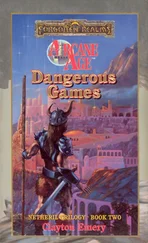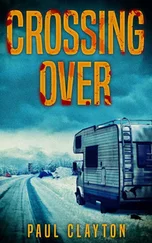Jo Clayton - Moongather
Здесь есть возможность читать онлайн «Jo Clayton - Moongather» весь текст электронной книги совершенно бесплатно (целиком полную версию без сокращений). В некоторых случаях можно слушать аудио, скачать через торрент в формате fb2 и присутствует краткое содержание. Жанр: Фэнтези, на английском языке. Описание произведения, (предисловие) а так же отзывы посетителей доступны на портале библиотеки ЛибКат.
- Название:Moongather
- Автор:
- Жанр:
- Год:неизвестен
- ISBN:нет данных
- Рейтинг книги:3 / 5. Голосов: 1
-
Избранное:Добавить в избранное
- Отзывы:
-
Ваша оценка:
- 60
- 1
- 2
- 3
- 4
- 5
Moongather: краткое содержание, описание и аннотация
Предлагаем к чтению аннотацию, описание, краткое содержание или предисловие (зависит от того, что написал сам автор книги «Moongather»). Если вы не нашли необходимую информацию о книге — напишите в комментариях, мы постараемся отыскать её.
Moongather — читать онлайн бесплатно полную книгу (весь текст) целиком
Ниже представлен текст книги, разбитый по страницам. Система сохранения места последней прочитанной страницы, позволяет с удобством читать онлайн бесплатно книгу «Moongather», без необходимости каждый раз заново искать на чём Вы остановились. Поставьте закладку, и сможете в любой момент перейти на страницу, на которой закончили чтение.
Интервал:
Закладка:
By the village wall, she slipped from the macai’s back, stripped off the saddle and used the pad to scrub his skin clean of all sweat.
She was pulling at the saddle’s belly band when she heard slow steps behind her. “Set the things down by me,” she called, then grunted and jabbed her knee into the macai’s side. The beast whooshed and honked, then sucked in its stomach. She pulled the strap taut and tucked it home. When she turned, she saw a girl crouching beside a heap of gear, a ragged girl with a sullen stubborn face, big hands spread out over the waterskin on the top of the heap, fierce determination in her scowl. Her skin was several shades darker than most fishers’, though her eyes were a greenish-brown, much like the Intii’s. Her hair was long and dirty, very dark, almost black. Mixed blood, Ser roi thought with a touch of sympathy. She could remember all too well how closed societies treated those among them who were different. “What is it?” Serroi asked quietly, not wanting to frighten her more than she was already, a fear that was glazing those green eyes.
The girl’s tongue traveled over dry lips. She rose slowly to her feet. About twelve, still flat-chested as a boy, she was nearly a head taller than Serroi. “The Intii sent these things and says it would be best to hurry.” She stumbled over the words, her voice hoarse and uncertain.
“Yes. I know.” Serroi took the saddlebags and shook out the Kappra’s rubbish, not bothering to see what was there. She took the bundles of food and the utensils provided by the Intii’s wife and stuffed them hastily into the bags, slapped the bay over the macai’s back, then reached for the blanket roll that the girl was holding out to her, her hands shaking badly. “Take me with you, meie,” she said rapidly. She let go of the bundle, pressed fisted hands against her chest. “I want to go to the Biserica, meie. Please?”
Serroi stared at her. Her first impulse was to refuse; she was in enough trouble without this added complication. Maiden bless, can’t I be excused this? I’d never get out of the village with her. And what do I do with her once we’re over the mountains, send her south alone? “I’m riding into a lot of trouble, child,” she said. “I can’t take you with me. You could be killed or worse.”
“Killed?” The word was low and intense. “Worse?” She shook the coarse hair out of her eyes. “Nothing could be worse than staying here. You have to take me. You have to.”
Serroi turned her back on her, started tying saddle thongs around the blanketroll. Over her shoulder she said, “You don’t understand what you’re asking.”
“I don’t care, meie.” She bent and picked up the waterskin, moving a little awkwardly, her thin body coltish, uncertain as a young macai. “Listen. My mother was raped by a Kappra and left for dead. Kappra!” She stretched her mouth into a snarl, then shook her head impatiently. “Better if she’d died. Or me. I eat the scraps after the posser and the oadats. Each time the Kapperim raid, the fishers who are killed-their families take it out on me. Meie, I’m a woman almost and there’s no one here to protect me, not even the Intii, though my mother was his own sister. I used my knee on a man this morning, I got away, but he’ll be waiting for me tonight. I don’t want to be the village whore, meie. Take me with you.”
Serroi took the waterskin from her and tied it slowly in place. “They won’t let you go.”
“I know. But I’m supposed to watch the posser and keep them out of the trees, what I thought-I’ll go away now and meet you out there, behind the knob where the Kapperim were.”
“You’ve thought this out very carefully.”
“Meie, I had to.” She glanced nervously around. “Please. I should go now, I’ve been here too long.”
“Wait a moment. There’s something I must do first.” She tapped the macai on the rump, sent it a few steps in a tight half-circle. “Start going through that junk.” She pointed to the pile of Kappran leavings on the ground. “At least you’ll look busy. There are some questions you must answer. It’s ritual. Do you understand?”
“Yes, meie.” The girl dropped on her knees and fumbled with the bits and pieces, touching them with a determined attempt to conquer her revulsion.
“You ask to be one of the company of the Biserica?”
“I ask it, meie.” Her hands stilled, began moving again.
“The way is long.” The required words came smoothly enough to Serroi though she felt little joy in speaking them. “We promise nothing.”
“I have learned to endure, meie.”
“What do you bring us?”
“Only my hands and my heart, meie. I’ll do anything, I don’t care what. To get away from here, to be someone, not an animal, I’ll do anything.”
Serroi took a deep breath. “If you join the company of meie, you must abandon the hope of children.”
“Better than being raped by whoever takes the notion. I want to rule my own life, meie.” Her body was taut as a bowstring with passion. “I want to be… I don’t know. I want to mean something.”
“Then let it be.” As the girl gathered herself, Serroi added hastily, “Don’t move yet, not for a minute. What’s your name, girl?”
“Dinafar.” Her tone turned bitter. “Outsider. That’s what my mother named me before she threw me into the street.”
“And I am Serroi. I’ll wait by the knob, but I meant it about the danger. I can’t explain, but think carefully before you come.”
Dinafar’s face flushed, then paled. She jumped to her feet, staggered, ducked her head in a awkward bow, then ran for the meadowland.
Serroi chuckled, shook her head as she turned to the macai and checked all the ties and straps, then she pulled herself in the saddle and started riding after Dinafar toward the rocky knob rising like a brown-grey pimple from the rolling green.
The Child: 3
The Noris’s head jerked, the red gem flickering in the pearly light coming from the room behind him, then flickered again as his mouth twitched into a ghost of a smile. “So it is. Serroi,” he said. “Come, Serroi, I want to show you where you’ll sleep.”
Rebellion melting away for the moment, she walked carefully past the raised tapestry and into the corridor, glancing repeatedly up at him, surprised at having surprised him, trying to fit his reaction into what she knew of people. The Noris spoke a WORD and the stone to her right gapped suddenly. Stone seemed as malleable as water to him. Light crawled up stairs folding in a tight spiral as the Noris dropped the tapestry and urged her forward with a hand on her shoulder onto steps that seemed to be driving into the stone, forcing it open as they climbed. Serroi trudged reluctantly up those unreeling stairs, feeling very strange. The narrow space made her skin itch; she didn’t like being so enclosed, was glad the Noris followed close behind.
She came around the last curve of the spiral and stepped into a short hallway with an arched roof, little more than an alcove shut off by a large panel of bronze. She turned and looked up at the Noris, puzzled.
“Open the door.” His voice filled all the space, stroked her like a caressing hand.
“How?” She scowled at the metal.
“Examine it.”
She marched up to the slab of bronze and looked it over. A little higher than her head a bronze hook stuck out of a slot. She pulled it, down and pushed. Nothing happened but a metallic clunk. She rubbed at her nose, then pulled the hook down again and lugged the door toward her. It slid smoothly open. She pushed it against the wall and swung around with a wide grin. “I did it.”
“So you did. Now, go inside.” The Noris folded his arms over his chest, his eyes twinkling at her.
Читать дальшеИнтервал:
Закладка:
Похожие книги на «Moongather»
Представляем Вашему вниманию похожие книги на «Moongather» списком для выбора. Мы отобрали схожую по названию и смыслу литературу в надежде предоставить читателям больше вариантов отыскать новые, интересные, ещё непрочитанные произведения.
Обсуждение, отзывы о книге «Moongather» и просто собственные мнения читателей. Оставьте ваши комментарии, напишите, что Вы думаете о произведении, его смысле или главных героях. Укажите что конкретно понравилось, а что нет, и почему Вы так считаете.












